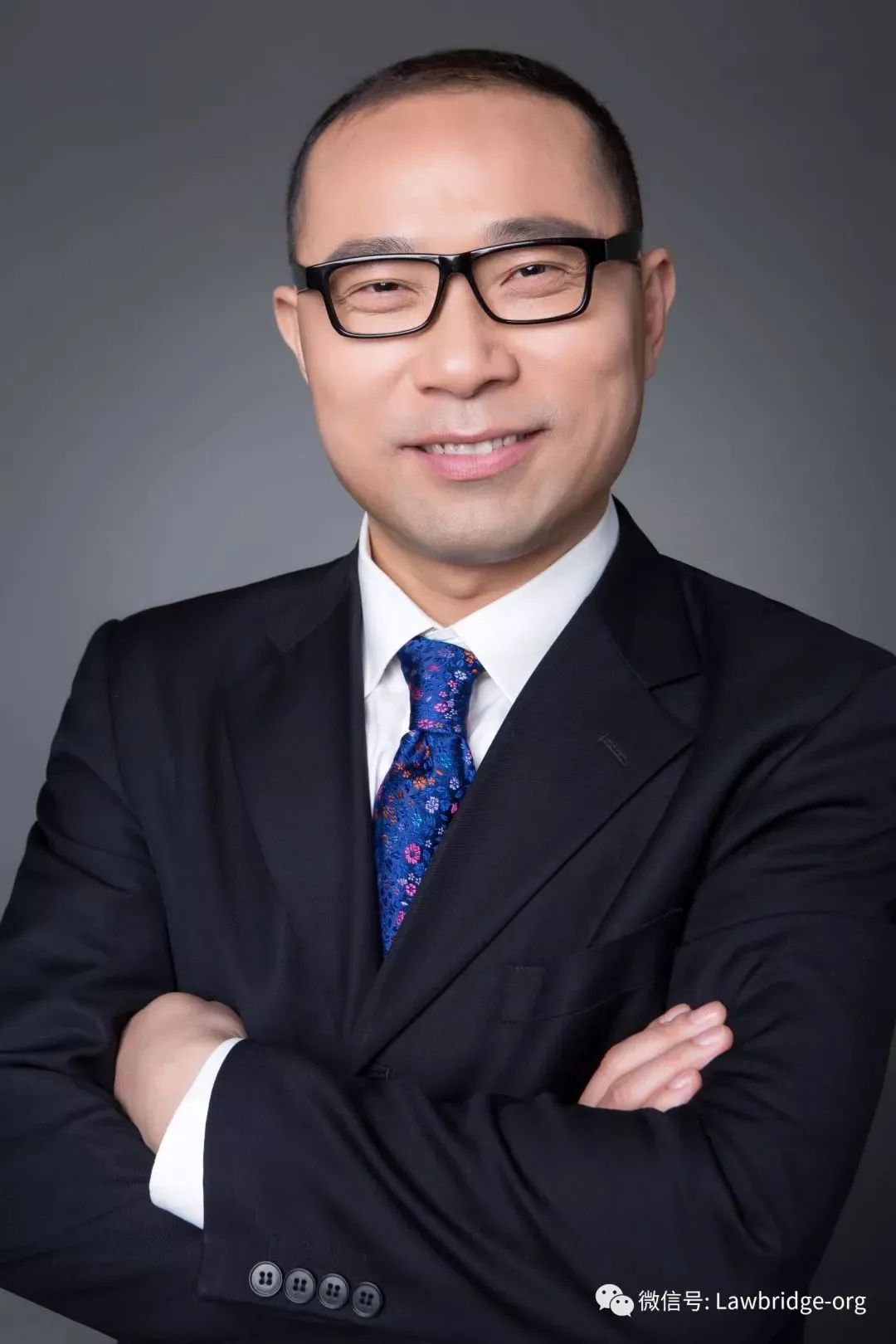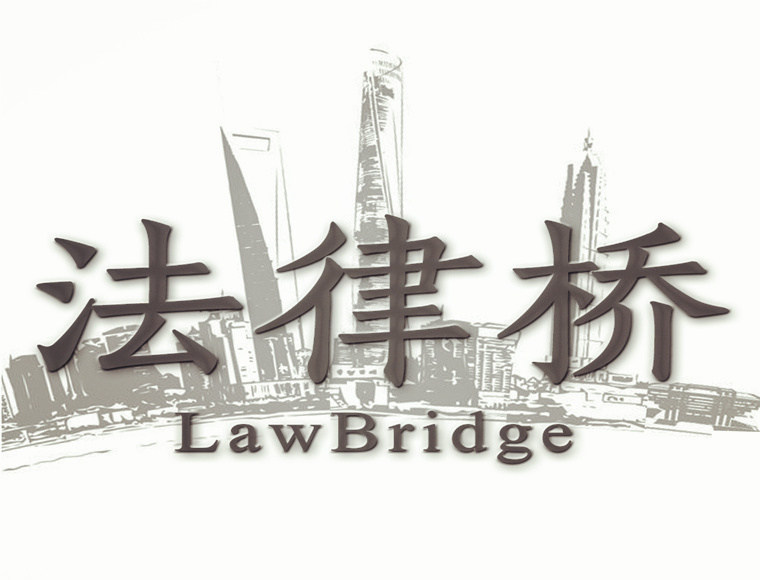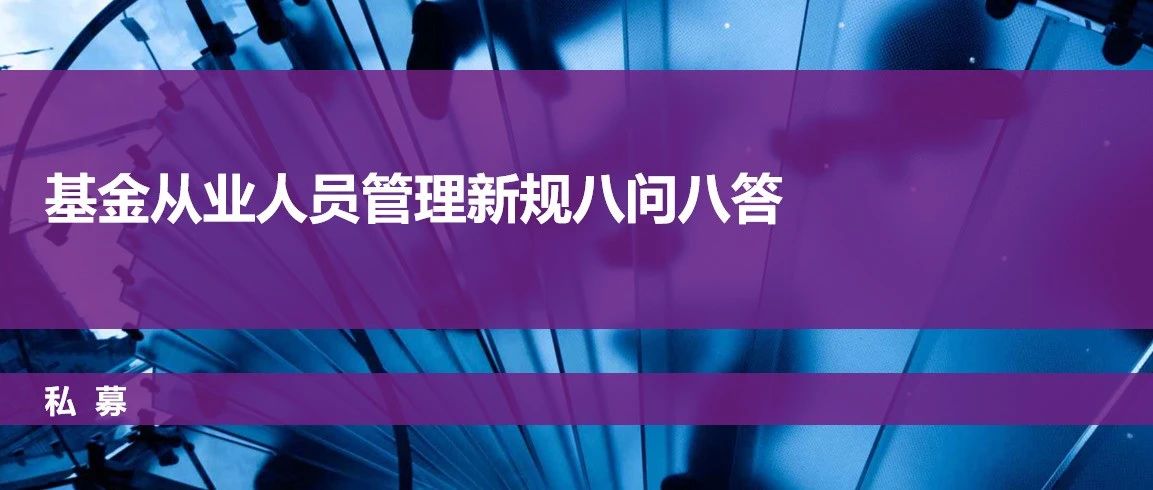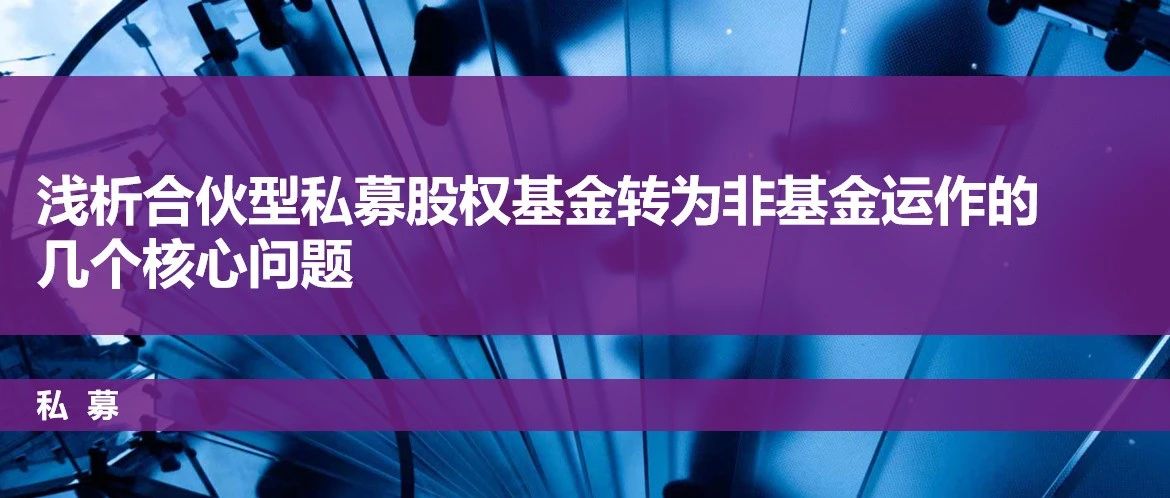Key points of legal due diligence for private equity investments with insurance funds - Target Funds (2023)
Preface
At the beginning of 2021, the General Office of the Central Committee of the Communist Party of China and the General Office of the State Council issued the "Action Plan for Building a High-Standard Market System", proposing to increase the proportion of equity investment in insurance funds, and study and improve insurance institutions' investment in private equity financial products, private equity funds, venture capital funds, and government investment Relevant policies on industrial investment funds and debt-for-equity swaps. On November 26, 2021, the former China Banking and Insurance Regulatory Commission (hereinafter referred to as the "former China Banking and Insurance Regulatory Commission", which has been abolished and is now the State Financial Supervision and Administration Bureau) issued the "Guiding Opinions on Supporting High-level Technology Self-reliance and Self-reliance in the Banking and Insurance Industry 》, support insurance institutions and other investment venture capital funds, government industrial investment funds, etc. On December 17, 2021, the former China Banking and Insurance Regulatory Commission issued the "Notice of the China Banking and Insurance Regulatory Commission on Amending Some Normative Documents in the Field of Insurance Fund Utilization" (Yinbao Jianfa [2021] No. 47, hereinafter referred to as "Document No. 47"). Not only did it cancel It has lifted the previous restriction that insurance funds[1] invest in venture capital funds and the fundraising scale of a single fund shall not exceed 500 million yuan. It also allows insurance funds to invest in equity investment funds actually controlled by non-insurance financial institutions, and supports insurance institutions to strengthen their cooperation with professional equity Cooperate with investment institutions to enrich long-term funding sources for entrepreneurial enterprises. This regulation is undoubtedly a major benefit to the insurance industry and the private equity fund industry.
In fact, my country's insurance institutions have a short history of equity investment. Before 2010, the scope of investment of insurance funds was relatively limited, and more investments were made in projects with lower risks and more stable returns. Starting from the second half of 2010, with the promulgation of the "Interim Measures for Insurance Fund Investment in Equity" (hereinafter referred to as "Document No. 79"), it was clarified that insurance funds can be invested in equity investment funds initiated and established by third-party equity investment management institutions (hereinafter referred to as "Document No. 79"). "Equity Investment Fund") and other related financial products. The "Notice on Issues Concerning the Investment of Insurance Funds in Equity and Real Estate" (hereinafter referred to as "Circular 59") issued in 2012 clarified and supplemented Circular 79, and appropriately relaxed relevant regulatory requirements. The "Notice of the China Insurance Regulatory Commission on Matters Concerning the Investment of Insurance Funds in Venture Capital Funds" (hereinafter referred to as "Circular No. 101") issued in 2014 clearly expanded the scope of private equity funds in which insurance funds can be invested to include venture capital funds. The aforementioned Document No. 47 is further policy support for the investment of insurance funds in venture capital funds.
Although regulatory authorities are gradually liberalizing the scope and amount of equity investment in insurance funds, compared with other institutional investors, insurance institutions naturally have higher requirements for the safety of funds. Therefore, conducting comprehensive pre-investment due diligence on the insurance institution itself, the proposed investment fund and its managers is not only a mandatory requirement of the national financial regulatory authorities for private equity investment of insurance funds, but can also improve the insurance industry to a certain extent. The security of funds for private equity investments. Yang Chunbao’s legal team has repeatedly provided full legal services for insurance institutions investing in well-known domestic private equity funds, including pre-investment legal due diligence and the issuance of legal opinions on the legality and compliance of insurance funds investing in private equity funds. This article intends to combine Based on our relevant service experience and relevant regulatory regulations, we respectively elaborate on the relevant regulatory requirements that three entities, including target funds, fund managers and insurance institutions, should comply with during the private equity investment process of insurance funds, with a view to regulating insurance companies planning to make private equity investments. Provide useful reference for institutions, as well as private equity funds and their managers that intend to accept investment from insurance funds. This is the first article: Target Fund.
[1] According to the "Insurance Fund Utilization Management Measures", insurance funds are defined as "capital funds, provident funds, undistributed profits, various reserves and other funds denominated in local and foreign currencies of insurance group (holding) companies and insurance companies .”
Basic information about target funds
Qualification
Registration
[2] According to Paragraph 2 of Article 39 of the "Registration and Filing Measures for Private Equity Investment Funds", completion of fundraising means that the subscribed investors of the private equity fund have signed the fund contract, and the first phase of paid-in raised funds has been entered into the custody account, etc. Fund property account. Unless otherwise provided, the initial paid-in capital contribution of a single investor shall not be less than the minimum capital contribution requirements of qualified investors.
[3] According to Article 7 of Guideline No. 2, the initial paid-in capital contribution of a single investor to a private equity fund shall not be less than the minimum capital contribution requirements of qualified investors, except for the following investors: ... (2) Insurance funds; ...
[4] According to Article 12 of the "Interim Measures for the Supervision and Administration of Private Equity Investment Funds", qualified investors in private equity funds refer to those who have corresponding risk identification capabilities and risk-taking capabilities, and the amount invested in a single private equity fund is not less than 1 million yuan Units and individuals that meet the following relevant standards:
(1) Units with net assets of not less than 10 million yuan;
(2) Individuals whose financial assets are not less than 3 million yuan or whose average annual personal income in the past three years is not less than 500,000 yuan.
The financial assets mentioned in the preceding paragraph include bank deposits, stocks, bonds, fund shares, asset management plans, bank financial products, trust plans, insurance products, futures rights, etc.
Fund investment and management
Investment advisory committee
(Only applicable to limited partnership target funds)
Investment related systems
According to the provisions of Document No. 79, insurance companies investing in equity investment funds are required to have definite investment objectives, investment plans, investment strategies, investment standards, investment processes, follow-up management, income distribution and fund liquidation arrangements.
Therefore, we suggest that the target fund should formulate clear investment objectives, investment plans and strategies, including investment scope, short, medium and long-term industry investment strategies and investment implementation plans; and in terms of investment standards, the target fund should have specific investment plans for different investment projects. Specific regulations on fund allocation and restrictions; in terms of investment process, the target fund should have a clear and specific investment decision-making mechanism; in terms of follow-up management, the target fund should have a detailed post-investment management system for invested projects; in terms of income In terms of distribution, the target fund should have specific and operable distribution methods for investment income; in terms of fund liquidation, the target fund should have specific liquidators and liquidation procedures.
Transaction structure, Risk disclosure and Information disclosure
According to the provisions of Document No. 79, when insurance companies invest in equity investment funds, they are required to have a clear transaction structure, sufficient risk warnings for investors, and true and complete information disclosure. According to the provisions of Document No. 59, equity investment funds invested by insurance funds include growth funds, merger and acquisition funds, emerging strategic industry funds and fund of funds whose investment targets are the above equity investment funds. Among them, the transaction structure of the fund of funds should be simple and clear and should not include other fund of funds. In addition, according to the provisions of the "Guiding Opinions on Regulating the Asset Management Business of Financial Institutions" (hereinafter referred to as the "New Asset Management Regulations"), asset management products[5] can invest in another layer of asset management products, but the asset management products invested in No investment in asset management products other than public securities investment funds is allowed. Private equity funds should be subject to their own special laws and regulations, but for content that is not clearly specified in the special laws and regulations, the new asset management regulations should be applied (relevant regulations for venture capital funds and government-funded industry investment funds will be formulated separately). According to the "Notice on Further Clarifying Matters Related to Regulating the Investment of Financial Institutions' Asset Management Products in Venture Capital Funds and Government-Sponsored Industrial Investment Funds" (hereinafter referred to as the "Notice on the Two Types of Funds"), for venture capital funds and government funds that comply with the Notice, When an asset management investment fund accepts investment from asset management products and other private equity investment funds, these two types of funds are not regarded as first-tier asset management products. The "Regulations on the Supervision and Administration of Private Equity Investment Funds" (hereinafter referred to as the "Private Equity Regulations") implemented on September 1, 2023 stipulates that private equity funds that invest their main fund assets in other private equity funds meet the conditions specified by the securities regulatory authority of the State Council ( i.e. "fund of funds") are not included in the investment hierarchy. The investment levels of venture capital funds and private equity funds initiated or invested by the state with a certain proportion of government funds shall be stipulated by the relevant departments of the State Council. In this regard, the "Responses to Reporters' Questions by the Heads of the Ministry of Justice and the Securities Regulatory Commission on the Private Equity Regulations" further clarified that "for private equity funds such as parent funds, venture capital funds, government funds, etc. that have reasonable business development needs, the Private Equity Regulations have already established rules Basically exempt from one layer of nesting restrictions." In view of the fact that the "Fund Law" and various departmental regulations and self-disciplinary rules issued by the China Securities Regulatory Commission and the Fund Industry Association have not covered other than venture capital funds, government funds and fund of funds. Regarding the content of the nesting levels of other asset management products, we believe that the existing rules mentioned in the Private Equity Regulations’ answer to reporters’ questions should mainly refer to the relevant provisions of the new asset management regulations and the “Two Types of Funds Notice”. That is to say, private equity funds (according to the Private Equity Regulations and the "Two Types of Funds Notice", except venture capital funds, government funds and fund of funds) should apply the relevant provisions on the number of nesting levels of asset management products in the new asset management regulations.
Therefore, we suggest that in terms of transaction structure, the target fund should first comply with the mandatory requirements of Document No. 79, Document No. 59 and the new asset management regulations (if necessary) (one exemption is allowed under the Private Equity Regulations and the "Two Types of Funds Notice"). Except for private equity fund types with layer nesting restrictions). Secondly, the actual capital contribution of each investor should be registered in a timely manner (including internal registration and enterprise change registration); in terms of risk disclosure, the target fund should clearly disclose various investment risks to investors; in terms of information disclosure , the target fund should truly and completely disclose various information during the fund's existence to each investor, including but not limited to fund contracts, fund prospectuses, etc.[6]
[5] According to the "Guiding Opinions on Regulating the Asset Management Business of Financial Institutions", asset management products include but are not limited to bank non-principal guaranteed financial products in RMB or foreign currency, capital trusts, securities companies, securities company subsidiaries, fund management companies, Asset management products issued by fund management subsidiaries, futures companies, futures company subsidiaries, insurance asset management institutions, and financial asset investment companies, etc.
[6] According to the "Private Investment Fund Information Disclosure Management Measures", information disclosure obligors refer to private fund managers, private fund custodians, as well as laws, administrative regulations, China Securities Regulatory Commission (hereinafter referred to as "China Securities Regulatory Commission") and Legal persons and other organizations with information disclosure obligations stipulated by the Asset Management Association of China (hereinafter referred to as the "China Asset Management Association");
The information that information disclosure obligors should disclose to investors includes:
(1) Fund contract;
(2) Prospectus and other promotional documents;
(3) The main rights and obligations clauses in the fund sales agreement (if any);
(4) Investment status of the fund;
(5) Assets and liabilities of the fund;
(6) Distribution of investment income of the fund;
(7) Fees borne by the fund and performance compensation arrangements;
(8) Possible conflicts of interest;
(9) Major litigation and arbitration involving private equity fund management business, fund property, and fund custody business;
(10) Other major information that affects the legitimate rights and interests of investors as stipulated by the China Securities Regulatory Commission and the China Asset Management Association.
According to the "Registration and Filing Measures for Private Equity Investment Funds", private equity fund managers and fund sales agencies that raise funds from investors must provide information on the private equity fund's manager and management team, investment scope, and Important information such as investment strategy, investment structure, fund structure, custody situation, related fees, income distribution principles, fund withdrawal, etc., as well as investment risks, operational risks, liquidity risks and other risk conditions are disclosed to investors.
Fund custody, Risk control and Exit
According to the provisions of Document No. 79, insurance companies investing in equity investment funds are required to have implemented an investment fund custody mechanism, raise or subscribe funds of not less than 500 million yuan, and have expected and feasible exit arrangements and sound and effective risk control measures. , and should also be traded in the market specified by the regulatory agency.
Therefore, we recommend that the target fund should entrust a financial institution established in accordance with the law with fund custody qualifications to sign a fund custody agreement and open a custody account. The target fund should ensure that its fundraising scale is no less than the lower limit of raised/subscribed capital scale stipulated in Document No. 79. In terms of risk control measures, target funds should have risk control systems required by relevant regulatory regulations such as risk management systems, risk isolation systems, and risk reserve systems.
Investment direction and Investment targets
According to the provisions of Document No. 79, when an insurance company invests in an equity investment fund, the investment direction or investment target of the fund is required to meet the following requirements: it is registered and established in accordance with the law and has legal person qualifications; it complies with the national industrial policy and has the qualifications stipulated by the relevant national departments; shareholders and Senior management personnel have good integrity records and good business reputation; the industry is in the growth stage, mature stage or is a strategic new industry, or has clear intention to go public and has high merger and acquisition value; it has market, technology, resources, competitive advantages and room for value improvement. It is expected to generate good cash returns and has a definite dividend system; the professional knowledge, industry experience and management capabilities of the management team are suitable for the responsibilities it performs; it is not involved in major legal disputes, the property rights of the assets are complete and clear, and there is no legal existence of equity or ownership Defects; no affiliation with insurance companies, investment institutions and professional institutions, except as permitted by regulatory regulations and reported and disclosed in advance.
According to the provisions of Document No. 101, the entrepreneurial enterprises invested by venture capital funds invested by insurance funds are unlisted enterprises that are in the start-up stage to the early stage of growth, or the industry has entered the early stage of growth but does not yet have a mature development model. Such entrepreneurial enterprises should also meet the following conditions: be legally established within the territory of China, comply with national industrial policies, have an excellent management team and strong growth potential, and have no bad records on the enterprise and its key management personnel. Moreover, the balance of the equity invested by a single fund in a single entrepreneurial enterprise shall not exceed 10% of the fund's fundraising scale. In addition, if insurance funds indirectly invest in entrepreneurial enterprises by investing in other equity investment funds, or indirectly invest in venture capital funds by investing in equity investment parent funds, the main investment direction, etc. shall comply with the regulations of the national financial supervision and management department on indirect investment of insurance funds in equity, that is, 59 Requirements related to insurance investment equity investment funds in the provisions of Document No. 79 and Document No. 79.
Therefore, we suggest that the target fund should promise that the projects it intends to invest in should strictly follow the provisions of Document No. 79, Document No. 101 and the relevant laws and regulations in effect at that time to select investment targets and conduct detailed due diligence. If the insurance funds are used to participate in the expansion of the target fund, the target fund should also confirm that the enterprises it has invested in comply with the mandatory provisions of the above-mentioned No. 79 and No. 101 on investment direction and investment targets. If any non-compliance or incomplete compliance is found, If possible, you should seek professional advice from legal and/or financial advisors to provide reasonable explanations while ensuring legal compliance.
Other prudential conditions specified by the state financial regulatory authorities
According to the provisions of Document No. 79, when insurance companies invest in equity investment funds, the funds must also meet other prudential conditions stipulated by the national financial regulatory authorities.
In recent years, while relaxing restrictions on insurance investment, financial regulatory authorities have also continuously strengthened supervision and issued new regulations from time to time. Therefore, the target fund must not only comply with the regulatory regulations in effect at the time, but also commit to its planned future activities. Investment activities will comply with other prudential conditions stipulated by the national financial regulatory authorities.
Requirements for insurance capital to participate in fund expansion
According to the provisions of the "Private Investment Fund Registration Guidelines No. 2 - Private Equity and Venture Capital Funds", if a private equity fund is open for subscription or subscription, it must meet the following conditions: it shall be managed by a private equity fund custodian; During the period; in accordance with the fund contract, the decision shall be adopted with the unanimous consent of all investors or the decision-making mechanism approved by all investors; other conditions stipulated by the China Securities Regulatory Commission and the Fund Industry Association. If the existing or newly paid-in insurance capital is not less than 10 million yuan[7], private equity funds are open for subscription or subscription, and the total scale of increased fund subscription is not limited; if the existing or newly added insurance capital is If the paid-in capital contribution is less than 10 million yuan, the total increased fund subscription scale shall not exceed 3 times the total fund subscription scale at the time of filing.
The provisions of Guideline No. 2 on fund expansion break the stereotype of “three times expansion” [8]. Considering that the volume of insurance funds is usually large, we understand that Guideline No. 2 has solved the problem to a certain extent of the previous inability to expand insurance funds. The issue of participating in the expansion of target funds with a small initial fundraising scale is a major benefit for insurance funds to participate in private equity investment.
[7] "Private Investment Fund Registration Guidelines No. 2 - Private Equity and Venture Capital Funds" Article 22 Paragraphs 2, 3 and 4 of the Private Equity Funds are open for subscription or subscription. The additional fund subscription The total scale of payment shall not exceed 3 times the total scale of fund subscription at the time of filing, unless one of the following circumstances is met:
(1) There are social security funds, enterprise annuities and other pension funds among existing investors or new investors;
(2) Existing investors or new investors include charity funds and other social welfare funds, insurance funds, or government-funded industry investment funds at or above the prefectural level, and the paid-in capital contribution of one of the aforementioned investors is no less than 10 million yuan;
(3) Both existing investors and new investors are investors with an initial paid-in capital contribution of not less than 10 million yuan, and private equity fund managers and private equity fund managers invest directly or indirectly through partnerships and other unincorporated forms. Except for private equity funds managed by the company, and the paid-in capital contribution is not less than 1 million;
(4) When the association is registered as a venture capital fund and open for subscription or subscription, the fund has completed no less than two investments in early-stage enterprises, small and medium-sized enterprises or high-tech enterprises;
(5) Other circumstances specified by the China Securities Regulatory Commission and the Association.
If the investors subject to the third paragraph of paragraph 2 of this article are private equity funds registered with the association, partnerships and other unincorporated forms, the private equity fund manager shall determine whether the investor meets the requirements of paragraph 2 of this article.
If the fund subscription scale is increased, the manager shall perform information disclosure obligations in accordance with the law and disclose to investors the source, scale, purpose and other information of the expanded funds.
[8] "Instructions for Registration of Private Equity Investment Funds (2019 Edition)" (Abolished) (11) [Closed Operation]... Private equity investment funds or private asset allocation funds that have been registered and approved can be registered if they meet the following conditions at the same time. Add new investors or increase the subscribed capital contribution of existing investors, but the increased subscribed capital amount shall not exceed 3 times the amount of capital subscribed at the time of filing:
1. The organizational form of the fund is corporate or partnership;
2. The fund is managed by a custodian who is established in accordance with the law and has obtained fund custody qualifications;
3. The fund is within the investment period stipulated in the contract;
4. The fund conducts portfolio investments, and the funds invested in a single subject shall not exceed 50% of the fund's final subscribed capital contribution;
5. The decision shall be adopted with the unanimous consent of all investors or the decision-making mechanism approved by all investors.
Inclusion
Author
Lawyer Yang Chunbao
First-grade lawyer
Senior Partner of Dentons (Shanghai) Law Firm

Email:
chambers.yang@dentons.cn
Leader of private equity and investment fund professionals in Dacheng China, member of the Capital Market Professional Committee, and member of the Shanghai Foreign Legal Talent Pool. Bachelor of Law from Fudan University (1992), Master of Law from the University of Science and Technology of Sydney (2001), and Master of Law from East China University of Political Science and Law (2001).
Lawyer Yang has been practicing for 29 years, specializing in legal services for private equity funds, investment and financing, and mergers and acquisitions, covering industries such as TMT, big finance, big health, real estate and infrastructure, exhibition industry, and manufacturing. Since 2004, he/she has been selected multiple times on the "Private Equity Fund" and "Company and Business" lists of The Legal 500, and has received special recommendations or comments from Asia Law profiles. Since 2016, he/she has been continuously selected as one of the "100 Outstanding Lawyers in Chinese Business" by the internationally renowned legal media China Business Law Journal, and has been awarded the title of "China's Annual Corporate Law Expert" by Leaders in Law 2021 Global Awards; Ranked in the recommended list of excellent lawyers and law firms recommended by the First China Famous Enterprise Law Society; Has won multiple awards such as Lawyer Monthly and Finance Monthly's China TMT Lawyer Award and China Mergers and Acquisitions Lawyer Award. Has the qualification to serve as an independent director of a listed company and is a part-time professor at the Law School of East China University of Science and Technology, a part-time supervisor at the Law School of Fudan University, a part-time graduate supervisor at East China University of Political Science and Law, a lecturer at the Private Equity President Class of Shanghai Jiao Tong University, and a lecturer at the Cross border Business Talent Training Class of Shanghai Municipal Commission of Commerce 16 monographs, including "Practical Practice in Risk Prevention and Control of Private Equity Investment Funds", "Practical Operation and Case Analysis of Full Legal Risk Prevention and Control of Enterprises", and "Complete Operation Guide for Corporate Investment and Financing Model Process of Wansheng Capital 2". Lawyer Yang's practice areas include companies, investment mergers and acquisitions, and private equity funds, capital markets, TMT, real estate and construction engineering, as well as dispute resolution in the aforementioned fields.
Author
Lawyer SunZhen
Partner of Dacheng (Shanghai) Law Firm

Email:
sun.zhen@dentons.cn
Prior to practicing, Lawyer Sun worked as an executive assistant to global, Asia Pacific, or China regional presidents or vice presidents in Fortune 500 companies such as Watts, Ingersoll Rand, and Alcatel Lucent in the United States. He has accumulated rich experience in enterprise operations and management, and possesses excellent bilingual communication and coordination skills in both Chinese and English. Lawyer Sun has published "Practical Practice in Risk Prevention and Control of Private Equity Investment Funds" and has published dozens of articles in the fields of mergers and acquisitions, funds, and e-commerce. Lawyer Sun specializes in areas such as private equity investment, corporate mergers and acquisitions, e-commerce, and labor legal affairs.
PE&TMT Lawbridge

Presiding lawyer: Yang Chunbao, first-class lawyer
Phone/WeChat: 1390 182 6830
Business contact and submission email:
chambers.yang@dentons.cn
Address: 9th/24th/25th floor, Shanghai World Financial Center, No. 100 Century Avenue, Shanghai






















































First, please LoginComment After ~